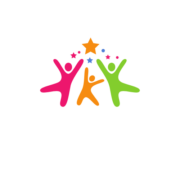Child and family development plays a crucial role in shaping the future of society. Understanding how children grow and thrive within their family units can provide valuable insights into their emotional, social, and cognitive well-being. As families navigate the complexities of modern life, the dynamics of these relationships become even more significant.
In today’s fast-paced world, parents face unique challenges that can impact their children’s development. By exploring effective parenting strategies and fostering strong family bonds, families can create a nurturing environment that promotes growth and resilience. This article delves into the essential aspects of child and family development, offering guidance and resources to help families flourish together.
Child and Family Development
Child and family development encompasses various aspects that contribute to a child’s growth and family dynamics. Understanding developmental milestones is critical for parents and caregivers. These milestones indicate typical growth patterns in areas such as physical, emotional, cognitive, and social development.
Key Areas of Development
-
 Physical Development: Physical development involves the growth of the body and motor skills. Children progress through stages, from crawling to walking and later to running. Regular physical activity promotes strong muscles and coordination.
Physical Development: Physical development involves the growth of the body and motor skills. Children progress through stages, from crawling to walking and later to running. Regular physical activity promotes strong muscles and coordination. -
Emotional Development: Emotional development focuses on children’s ability to understand and manage feelings. Guided support from family encourages emotional intelligence. Parents play a vital role in helping children express their emotions healthily.
-
Cognitive Development: Cognitive development relates to thinking, learning, and problem-solving skills. Engaging children in activities like reading and puzzles stimulates cognitive growth. Parents create an intellectually enriching environment by encouraging curiosity.
-
Social Development: Social development involves how children interact with others. Cooperation, sharing, and communication skills develop through social interactions. Family gatherings and playdates enhance social competencies.
Family Dynamics
Family dynamics significantly influence child development. Strong familial relationships foster a sense of security and belonging. Parents modeling positive behaviors teach children effective communication and conflict resolution skills.
Parenting Strategies
Effective parenting strategies are essential for nurturing resilience in children. Consistent routines provide a sense of stability. Encouraging independence enables children to explore and learn from their experiences.
Key Theories in Child and Family Development
Attachment Theory
 Attachment theory, developed by John Bowlby and furthered by Mary Ainsworth, emphasizes the importance of secure emotional bonds between children and caregivers. Secure attachments foster emotional well-being, while insecure attachments can lead to behavioral challenges. Children with secure attachments display better social skills, higher self-esteem, and improved resilience. Effective parenting strategies, such as responsive caregiving and consistent presence, promote the development of secure attachments, laying the groundwork for healthy relationships in adulthood.
Attachment theory, developed by John Bowlby and furthered by Mary Ainsworth, emphasizes the importance of secure emotional bonds between children and caregivers. Secure attachments foster emotional well-being, while insecure attachments can lead to behavioral challenges. Children with secure attachments display better social skills, higher self-esteem, and improved resilience. Effective parenting strategies, such as responsive caregiving and consistent presence, promote the development of secure attachments, laying the groundwork for healthy relationships in adulthood.
Ecological Systems Theory
Ecological systems theory, proposed by Urie Bronfenbrenner, illustrates how various environmental systems influence child development. This theory identifies five interconnected systems: the microsystem, mesosystem, exosystem, macrosystem, and chronosystem. Each system encompasses different influences, from family interactions to broader societal factors. Social Development: Play becomes essential. Cooperative play helps develop social skills, fostering friendships and teamwork.
-
Physical Development: Children experience steady growth, coordination improves, and they participate in organized sports, promoting healthy habits.
-
Cognitive Development: Critical thinking and problem-solving skills emerge. Academic achievement becomes a focus, as children learn to read, write, and perform mathematics.
-
Emotional Development: Self-esteem develops, and children learn to manage emotions more effectively. They begin to understand empathy and the feelings of others.
-
Social Development: Relationships expand beyond family, as friendships and peer experiences shape social identity. Children develop a sense of belonging and acceptance within peer groups.
The Role of Family in Development
 Recognizing the profound impact of family on child development is vital for nurturing future generations. Strong family bonds and effective parenting strategies create a secure foundation that supports children’s growth across various dimensions. By fostering open communication and encouraging independence, families can help children navigate challenges and build resilience.
Recognizing the profound impact of family on child development is vital for nurturing future generations. Strong family bonds and effective parenting strategies create a secure foundation that supports children’s growth across various dimensions. By fostering open communication and encouraging independence, families can help children navigate challenges and build resilience.
Embracing the interconnectedness of child and family development allows parents and caregivers to make informed decisions that enhance well-being. With the right resources and support, families can cultivate environments that promote healthy emotional and social development. Investing in these relationships not only benefits individual children but also strengthens the fabric of society as a whole.

